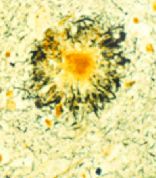
Here are his thoughts on the value of nonpharmacologic strategies in support of drug treatment.
Music therapy
- It may benefit some patients.
- In particular, classical music can produce transient increases in cognitive performance (reasoning).
- Caregiver singing has improved patient well-being.
- Patients appear to regain skills necessary for activities of daily living.
- Singing increased patients’ intention, purpose, and competence to perform tasks and improve communication skills.
Exercise
- Exercise delays cognitive decline for 24 months and improves memory and frontal lobe functions (voluntary movements).
- Exercise training plus educating caregivers about behavioral management techniques improves physical health and depression.
Montessori-based programming
- Positive results, even in those with advanced disease, include more constructive social engagement and enjoyments.
- Examples of Montessori-based activities used in dementia care include the following:
- Placing colored golf balls in muffin pans
- Matching pictures of peoples’ facial expressions to their mood
- Small group activities such as memory bingo and group sorting
The bottom line?
“It is increasingly evident,” says Dr. Galvin, “that a combination approach is best suited to address patient health and safety.”
- 9/18/08 22:10 JR